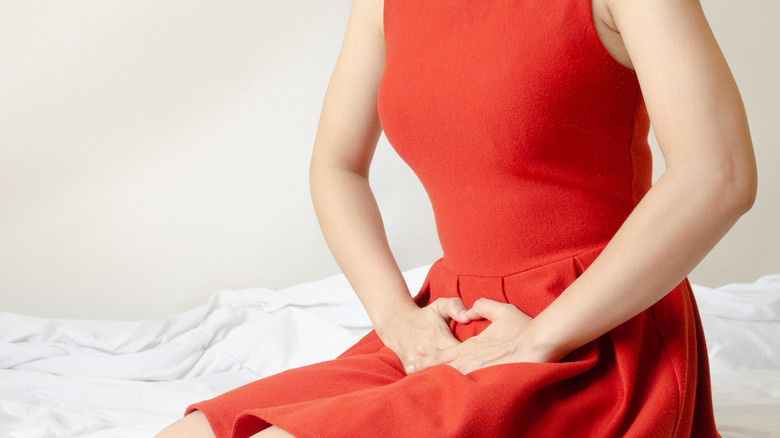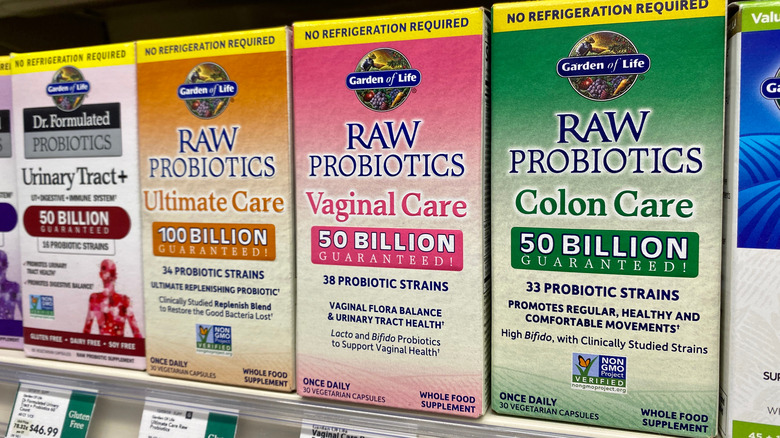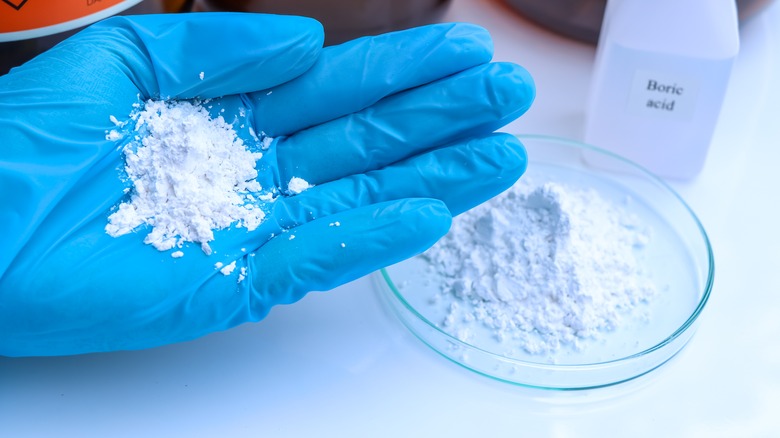Natural Remedies For Bacterial Vaginosis
Bacterial vaginosis is one of the most common yet overlooked genital disorders, affecting millions of women worldwide. Although it's not a sexually transmitted disease (STD), it can increase the risk of gonorrhea, genital herpes, and other STDs. In some cases, it may lead to pregnancy complications, such as miscarriage and preterm birth, notes a 2017 review published in the International Journal of Microbiology.
This disorder has similar symptoms to a yeast infection, but it's caused by Escherichia coli, Ureaplasma urealyticum, Staphylococcus aureus, and other bacterial strains. It usually occurs when there's an imbalance in the vaginal pH, which can cause these harmful bacteria to grow out of control. As you might have guessed, personal hygiene may play a role in its onset.
More than 80% of women with bacterial vaginosis don't experience any symptoms, and the disease often goes untreated. However, some may have a white, gray, or green vaginal discharge with a foul odor, as well as itching or soreness in the genital area. Just like with yeast infections, the discharge is often milky and thick and has the consistency of cottage cheese.
These symptoms may subside without treatment, but it's best not to take risks. Chances are, your doctor will prescribe a course of antibiotics, which should eliminate the infection within a week or so. Meanwhile, you could try some home remedies for bacterial vaginosis to ease its symptoms and restore your vaginal pH balance.
Probiotics can help balance your vaginal flora
Maintaining a healthy vaginal flora is one of the best ways to prevent this condition, according to the Office on Women's Health. However, if you already have bacterial vaginosis, you may be able to relieve its symptoms by restoring the good bacteria in your genital area. To do so, avoid douching and start using oral or vaginal probiotics.
A 2014 review published in the Journal of Lower Genital Tract Disease suggests that probiotics may decrease the recurrence of bacterial vaginosis without any side effects. Researchers recommend choosing a product that contains Lactobacillus acidophilus, L. fermentum, and L. rhamnosus and using it daily for at least two months. In one study, women who used slow-release vaginal probiotics for 28 days experienced significant improvements in their symptoms. The product contained L. fermentum and L. plantarum, notes the Journal of Clinical Gastroenterology.
"Numerous Lactobacillus strains have been shown to be active against the main pathogens responsible for bacterial infections of the vaginal and urinary tract," said OB-GYN Oluwatosin Goje in an interview with the Cleveland Clinic. Although the research is mixed, probiotics may help prevent bacterial vaginosis and yeast infections in the long run. Some also contain lactoferrin, cranberry extract, and other compounds that may protect against urinary tract infections, according to Dr. Goje.
Prevent recurrent bacterial vaginosis with boric acid suppositories
Boric acid has a wide range of uses due to its antifungal, antibacterial, and anti-inflammatory effects. Perhaps not surprisingly, it seems to be a safe treatment option for bacterial vaginosis and yeast infections. Clinical research published in the journal Sexually Transmitted Diseases suggests that boric acid can suppress bacterial growth and prevent pathogens from forming a biofilm. What's more, it may reduce the symptoms associated with bacterial vaginosis and boost the immune response.
Note, though — this compound can be toxic if ingested, and you should only use it in suppository form for the treatment of bacterial vaginosis. Intravaginal boric acid is generally well-tolerated, but it may cause a burning sensation, allergic reactions, or irritation.
Last but not least, Massachusetts General Hospital recommends using enteric-coated or vaginal vitamin C to treat bacterial vaginosis. This product may help restore your vaginal pH balance and microflora, preventing recurrent infections. Anecdotal evidence suggests that apple cider vinegar, yogurt, and other home remedies can help, too, but these claims lack scientific support.


